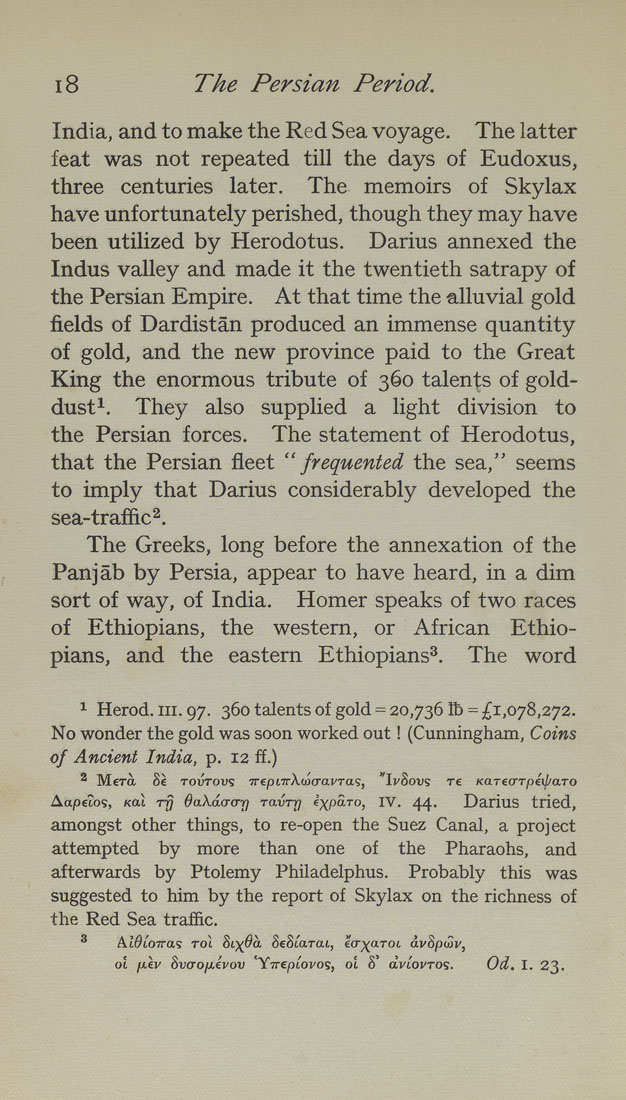18 The Persian Period.
India, and to make the Red Sea voyage. The latter
feat was not repeated till the days of Eudoxus,
three centuries later. The memoirs of Skylax
have unfortunately perished, though they may have
been utilized by Herodotus. Darius annexed the
Indus valley and made it the twentieth satrapy of
the Persian Empire. At that time the alluvial gold
fields of Dardistan produced an immense quantity
of gold, and the new province paid to the Great
King the enormous tribute of 360 talents of gold-
dust^. They also supplied a light division to
the Persian forces. The statement of Herodotus,
that the Persian fleet ''frequented the sea," seems
to imply that Darius considerably developed the
sea-trafiic^.
The Greeks, long before the annexation of the
Panjab by Persia, appear to have heard, in a dim
sort of way, of India. Homer speaks of two races
of Ethiopians, the western, or African Ethio¬
pians, and the eastern Ethiopians^. The word
1 Herod. III. 97, 360 talents of gold = 20,736 lb = £1,078,272.
No wonder the gold was soon worked out! (Cunningham, Coins
of Ancient India, p. 12 ff.)
^ Mem Se toutovs TreptTrAwcravTas, IvSovs t€ KaT€crTpei//aro
Aapeios, KoX rfj OaXda-a-rj ravrrj ixpo-ro, IV. 44- Darius tried,
amongst other things, to re-open the Suez Canal, a project
attempted by more than one of the Pharaohs, and
afterwards by Ptolemy Philadelphus. Probably this was
suggested to him by the report of Skylax on the richness of
the Red Sea trafiic.
* At^tOTras Tol 8L)(6a SeStarat, ea-y^aroL a.v8pwv,
01 fjilv SvaofJievov 'YTreptovos, oi 8 avtovros. Od. I. 23.
|








